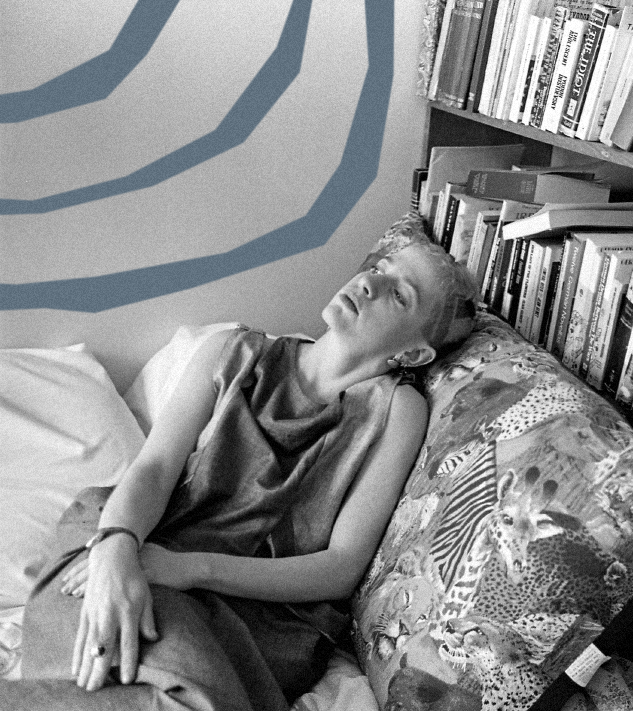I Talk to my Birthmark: Reimagining the Literary Genre of Body Horror
Reading body horror as a genre of feminist fiction is not a subterranean or unexplored lens: I’ve found myself down a rabbit hole of works like Cursed Bunny by Bora Chung, or Paradise Rot by Jenny Hval. I was captivated by the beauty of re-imagined folk tales, reproductive impossibilities and surreal mycelium networks. Like successful science fiction, body horror reminds us not of what’s wrong with our bodies, but of what’s wrong with cyclical trends of beauty. It reminds us of state-sanctioned injustice, highlights the violence of institutions, patriarchy, and plastic surgery. It reminds us of how we are punished for reasons beyond our control.
In Night Bitch by Rachel Yoder, the protagonist feels hair growing only she can see, and feels her teeth sharpening ready to sink into flesh. What if my body has something no one else can see? What if I felt there are aspects of fictional body horror that I started to live?
In Carmen Maria Machado’s short story Eight Bites, a woman explores pain and loss after gastric bypass surgery. As she’s recovering, she’s haunted by the incarnation of her lost fat. I read this years ago and it must have lodged itself subconsciously into the glial cells of my brain.
___STEADY_PAYWALL___
I was born with a non-cancerous coalescence of blood vessels on the side of my face called a haemangioma. I never fully understood what this vascular malformation was before it was partially removed. I know it required three laser procedures to lessen the pigmentation, and four liposuction surgeries to extract my extra tissue. The mass swelled and deflated like a life form of its own, sore and hot, puffing up enough to make my baby head flop over. These surgeries were for aesthetic reasons, and as a child I was grateful for them, praying every day for facial symmetry.
Years after the final procedure, I speak to the phantom mass of my birthmark, like the character in Machado’s story. I’m anthropomorphising this lost part of me, trying to comfort her, reaching up to scratch her or touch her gently. “—It melts away, it's just gone—” say the sisters in Machado’s story of their fat after their invasive ‘gut-rerouting’ surgeries. It’s just gone, but that’s not how matter works. It transformed, like the tissue removed from my body. Once precious, then chemical waste, now decomposed. When Machado’s character speaks to this figure, she is angry, she hurts her. I understand, I’ve wanted to do that or I’ve done it. Now I want to honour my phantom mass, make an alter to her, write to her, quit excluding her. I want to do what the figure in Eight Bites does for the human she used to be a part of: leave “offerings on the coffee table: safety pins, champagne bottle corks, hard candies twisted in strawberry-patterned cellophane.”
The zapping lasers that removed the colour from my birthmark is like the pain of getting a tattoo. It’s loud and kinetic like a rubber band smacking you. After each laser session, I was shrouded in a sheet of clingfilm and a bandage. When I removed the wrapping, my skin was black and blue and it shone with petroleum jelly. I felt like a mutant, a fish-girl, an alien. I was fascinated. My vomit was red and I thought it was blood but I had eaten strawberries. The recovery days were liminal and I felt like a creature from a horror movie.
“There is value in leaning into the gore, not to romanticise, but to accept everyday horrors reimagined compassionately.”
So why do I miss it? A therapist said during a group session discussing the dangers of plastic surgery, that my situation was different. Surgery improved my quality of life. It raises the question when dissecting my childhood self, was my bodily autonomy redacted due to my circumstances? I was lucky to have a supportive family and access to medical care, but the truth is, there was a perceived deformity on my childhood face that was removed to make socialising easier.
Luckily, it provided me with the ability to recognise from a young age the viciousness of targeted beauty ads, observe the ‘trends’ of breast augmentation, BBLs, et all and to disengage. I know the pain of recovery time, I know the experience of looking at a surgically wounded part of your body and feeling unrecognisable. This is not a judgement on anyone who has had plastic surgery, for any reason. In an inverse, possibly just as self-conscious way, I’m mourning the loss of the social currency of the ‘weird’ or ‘other’ that is sometimes prevalent in queer and creative communities.
This non-conformity reminds me of Kathy Acker’s body modification practices of tattoos, piercing, and bodybuilding. Her auto-fictitious writing is an exploration of the horrors of violent sex and of pelvic inflammatory disease. In Against Ordinary Language: The Language of the Body, Acker writes about the meditative/mathematical process of bodybuilding, how the repetitive act of damaging your body to change muscular mass is dependent on initial failure. In the final paragraph, she expresses that by viewing bodies as disgusting mutants of death, we turn ourselves into “dangerous others.” Acker attempts to control the change and embrace mortality through bodybuilding.
There is value in leaning into the gore, not to romanticise, but to accept everyday horrors reimagined compassionately. The possibility of a lip pimple bursting on a first date, or a tenacious fungal infection from wearing three pairs of socks while wild camping in the dead of winter is kind of magical. Waking up after vomiting in your sleep, but realising you survived, and you might have even dreamt about an angel or something. These seemingly gross, flippant anecdotes can be enough to make you feel othered. It’s a form of resistance to share the mundane, obscene, unclean human experience. Find the joy. I want to hear about it.
Words: Sophie Howe


